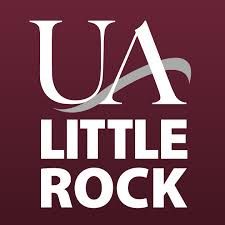/ Not yet recruitingPhase 2/3 Phase 2/3, Multicenter, Randomized, Open-Label Study Evaluating the Efficacy and Safety of Etentamig and Daratumumab (Etentamig+D) Compared to Daratumumab, Lenalidomide, and Dexamethasone (DRd) in Subjects With Newly Diagnosed Multiple Myeloma Not Eligible for Transplant
Multiple myeloma (MM) is a cancer of the blood's plasma cells. The cancer is typically found in the bones and bone marrow (the spongy tissue inside of the bones) and can cause bone pain, fractures, infections, weaker bones, and kidney failure. This is a study to determine the adverse events, change in disease activity, and pharmacokinetics of Etentamig in adult participants with MM.
Etentamig is an investigational drug being developed for the treatment of MM. This study is broken into 2 phases; phase 2 with 3 study arms and phase 3 with 2 study arms. Participants in phase 2 will receive 1 of 3 doses of etentamig in combination with daratumumab. Participants in phase 3 will receive etentamig at RP3D in combination with daratumumab, or daratumumab, lenalidomide, and dexamethasone (DRd). Around 660 adult participants with MM will be enrolled at approximately 155 sites worldwide
Participants in phase 2 will receive 1 of 3 doses of etentamig as intravenous (IV) infusions, combination with subcutaneous (SC) injections of daratumumab. Participants in phase 3 will receive RP3D doses of etentamig as IV infusions, combination with SC injections of daratumumab, or SC injections of daratumumab, capsules of lenalidomide, and tablet/ IV injections of dexamethasone (DRd). The study duration is approximately 16 years.
There may be higher treatment burden for participants in this trial compared to their standard of care. Participants will attend regular visits during the study at a hospital or clinic. The effect of the treatment will be checked by medical assessments, blood tests, checking for side effects and questionnaires.
/ Not yet recruitingPhase 2IIT A Phase 2 Study Exploring the Use of Bispecific Antibodies to Improve Progression Free Survival in Patients With High-Risk Newly Diagnosed Multiple Myeloma (MMulti-Immune HR)
The purpose of this research is to learn whether using teclistamab and talquetamab at different time points will improve survival in participants with high-risk Multiple Myeloma (MM).
The treatment on this study will consist of Induction chemotherapy and stem cell collection, Immunotherapy 1 chemotherapy and Immunotherapy 2 chemotherapy. For participants whose testing show they are Minimal Residual Disease (MRD) positive (still have myeloma cells present in the bone marrow testing), a Melphalan-based stem cell transplant will be performed. For participants whose testing show they are MRD negative, the stem cell transplant will not be performed. All participants will go on to receive Immunotherapy 3 chemotherapy, Immunotherapy 4 chemotherapy, and Maintenance therapy.
/ Not yet recruitingPhase 3IIT A Randomized, Open-Label, Controlled Phase 3 Study of Comparing Daratumumab, Lenalidomide and Dexamethasone Induction Followed by Linvoseltamab Versus Continued Daratumumab, Lenalidomide, and Dexamethasone in Newly Diagnosed Transplant Ineligible Multiple Myeloma Patients
This study is researching an experimental drug called linvoseltamab. The study is focused on participants with newly diagnosed multiple myeloma (NDMM) who are ineligible for autologous stem cell transplantation (transplant-ineligible).
The main purpose of this study is to compare the effect and safety of linvoseltamab with the effect and safety of the standard treatment.
100 Clinical Results associated with CD38 x CK1α x CRBN x IKZF1 x IKZF3
100 Translational Medicine associated with CD38 x CK1α x CRBN x IKZF1 x IKZF3
0 Patents (Medical) associated with CD38 x CK1α x CRBN x IKZF1 x IKZF3

